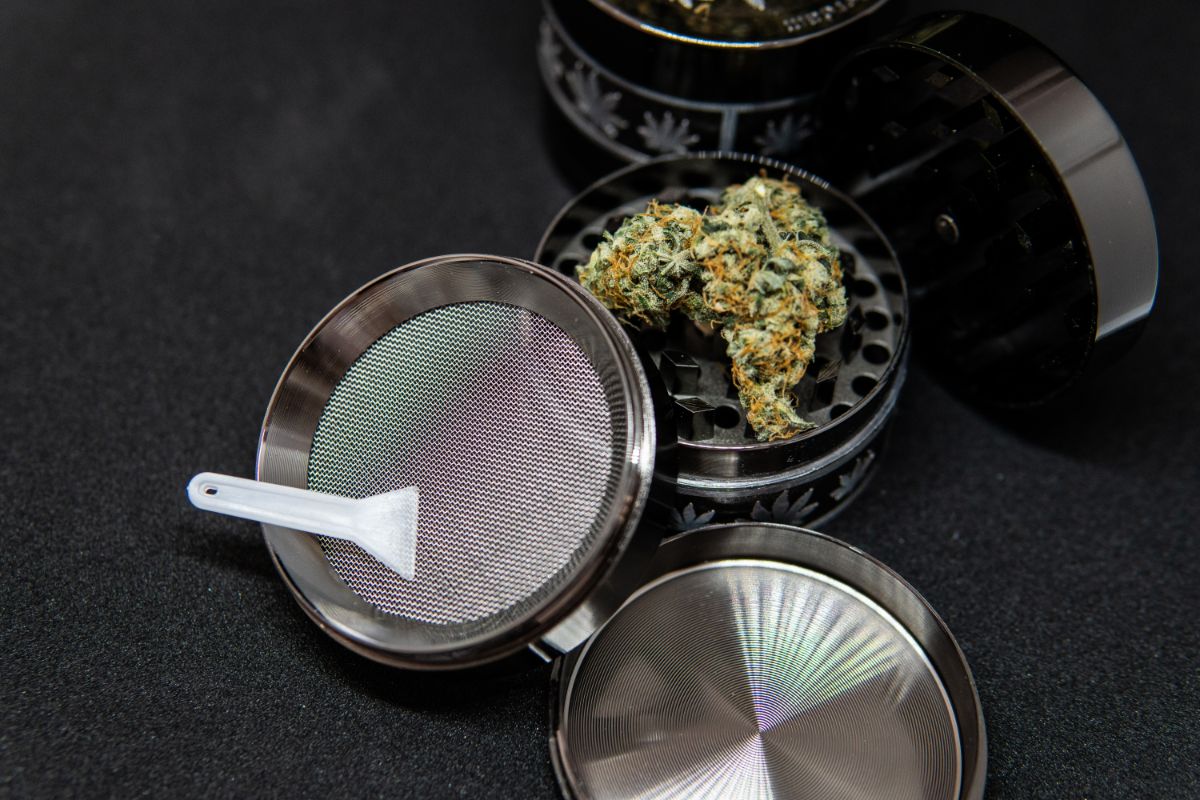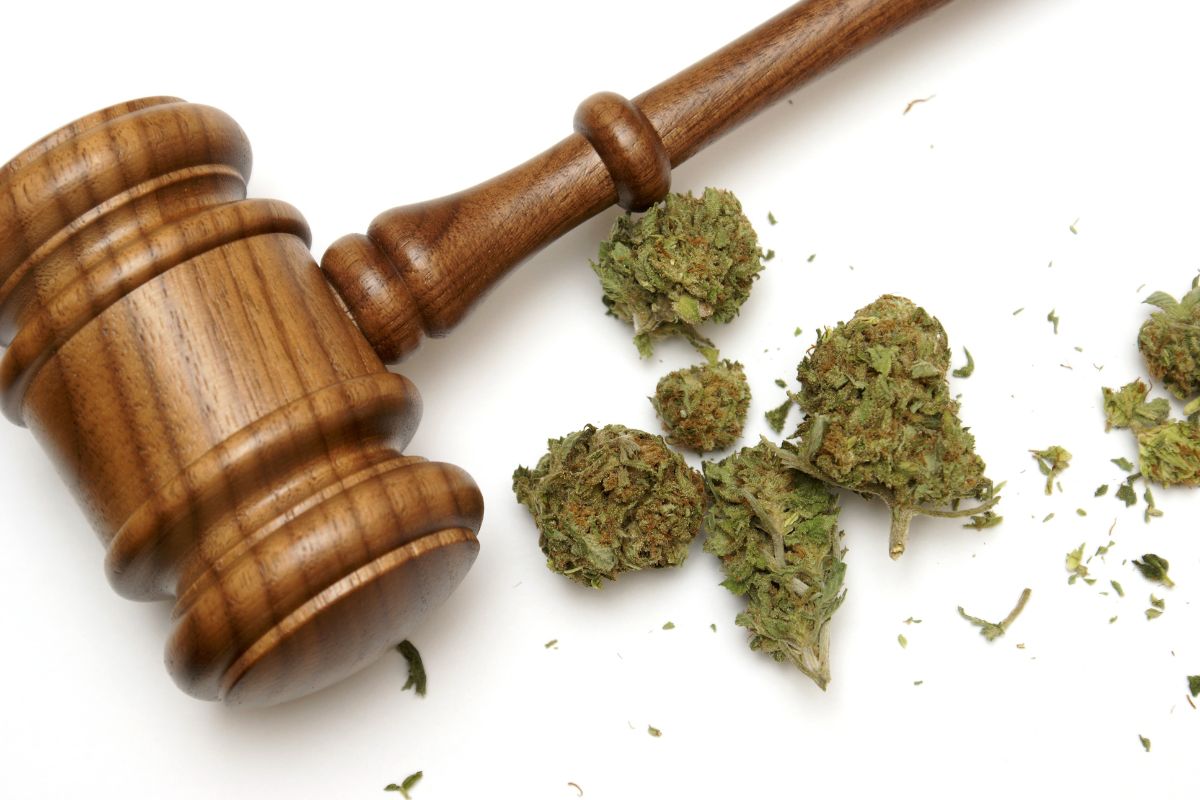We occasionally recommend products we love and might be paid a share of the sale.
If you’re wondering whether weed is legal in Montana, you’re not alone. With the changing landscape of cannabis laws across the United States, it can be tough to keep up with the latest developments.
Fortunately, we’re here to give you the lowdown on Montana’s marijuana laws. So, whether you’re a Montana resident or just passing through, it’s always good to know the local laws and regulations around cannabis.
The Legal Landscape Of Weed In Montana
So, what’s the deal with weed in Montana? Here’s what you need to know:
Medical Marijuana Is Legal
If you’re a Montana resident with a qualifying medical condition, you can legally use medical marijuana to treat your symptoms.
Qualifying conditions include cancer, glaucoma, HIV/AIDS, epilepsy, and several other chronic or debilitating conditions.
To obtain a medical marijuana card, you’ll need to visit a licensed healthcare provider and get a recommendation.
Once you have your recommendation, you’ll need to submit an application to the Montana Department of Public Health and Human Services (DPHHS).
If your application is approved, you’ll receive a medical marijuana card that allows you to purchase and possess cannabis from licensed dispensaries.
Yet, it’s worth noting that Montana’s medical marijuana program has faced some challenges in recent years.
In 2011, the Montana legislature passed a bill that severely restricted the state’s medical marijuana program, leading to a decline in the number of registered patients and licensed providers.
However, in 2016, Montana voters approved a ballot initiative that reinstated many of the program’s previous protections and expanded access to medical marijuana.
Recreational Marijuana Is Also Legal
As of January 1, 2022, Montana became one of the many states in the United States to legalize marijuana for both medical and recreational use.
This means that adults 21 and over can legally purchase and possess up to one ounce of marijuana, as well as cultivate up to four mature and four immature plants for personal use.
In addition to personal use, licensed dispensaries in Montana are now legally permitted to sell marijuana products to adults over 21 who have a valid ID.
This represents a significant shift in the legal landscape around marijuana in Montana, as well as a potentially significant economic opportunity for those in the cannabis industry.
However, it’s important to note that there are still some restrictions on marijuana use and possession in Montana. For example, it is still illegal to consume marijuana in public or to drive under the influence of marijuana.
Furthermore, there are limitations on where individuals can cultivate marijuana plants, and it’s important to follow state regulations and guidelines to avoid any potential legal issues.
Penalties For Possession And Sale Of Marijuana
While medical marijuana is legal in Montana and recreational marijuana is legal, it’s still important to understand the potential consequences of violating other state marijuana laws.
Possession of marijuana without a medical marijuana card is currently illegal in Montana, and penalties can vary depending on the amount of cannabis involved.
If you’re caught with less than 60 grams of marijuana, you could be charged with a misdemeanor and face a fine of up to $500 and/or up to six months in jail.
Possession of more than 60 grams of marijuana is considered a felony, which can carry much more severe penalties, including fines of up to $50,000 and/or up to five years in prison.
Selling marijuana is also illegal in Montana and can result in even more serious penalties.
If you’re caught selling less than one pound of marijuana, you could be charged with a felony and face fines of up to $50,000 and/or up to 20 years in prison.
Selling larger quantities of marijuana can result in even more severe penalties, including life imprisonment.
Federal Law And Marijuana
It’s also important to understand the relationship between state and federal law when it comes to marijuana.
While Montana has legalized medical marijuana as well as recreational marijuana, cannabis is still considered illegal under federal law.
This means that even if you’re following all state regulations and guidelines, you could still face federal charges if you’re caught possessing or selling marijuana.
However, it’s worth noting that the federal government has historically taken a hands-off approach to state-level marijuana laws, and it is unclear how aggressively federal law enforcement will pursue marijuana-related crimes in
Montana and other states where cannabis is legal.
Impact Of Marijuana Legalization On Montana
The legalization of medical and recreational marijuana in Montana is likely to have a number of impacts on the state.
For one, it could provide a significant boost to the state’s economy, as commercial cultivation and sale of marijuana becomes legal.
In addition, legalization could also have public health impacts, both positive and negative.
Some advocates argue that marijuana can be a safer alternative to alcohol and prescription drugs, while others warn of potential negative effects on mental health and addiction rates.
On the other hand, some people have concerns about the potential public health impacts of marijuana legalization.
While marijuana has been shown to have medical benefits and can be a safer alternative to certain prescription drugs, it can also have negative effects on mental health, particularly in individuals who are predisposed to certain mental health conditions.
In addition to that, there are also concerns about the potential for increased addiction rates and impaired driving incidents.
It’s worth noting that these concerns are not unique to marijuana, and that many legal substances, including alcohol and tobacco, also have potential negative health impacts.
However, it’s important for policymakers and individuals to weigh the potential benefits and drawbacks of legalizing marijuana in Montana and to take steps to mitigate any potential negative impacts.
The Bottom Line
Montana has joined the growing number of states that have legalized marijuana for both medical and recreational use.
While this represents a significant shift in the state’s legal and cultural landscape, it’s important to recognize that there are still restrictions and potential risks associated with marijuana use.
So, one question remains: what impact will this new legal landscape have on the state’s economy, culture, and public health? We cannot wait to find out!
Learn more about the legal status of weed in the Rocky Mountains and in neighboring states:
- Is weed legal in Idaho?
- Is weed legal in North Dakota?
- Is weed legal in South Dakota?
- Is weed legal in Wyoming?
I’m an avid gardener and cannabis enthusiast. You can usually find me in my garden caring for my plants or at my computer crafting helpful blogs for my readers.
Contents



